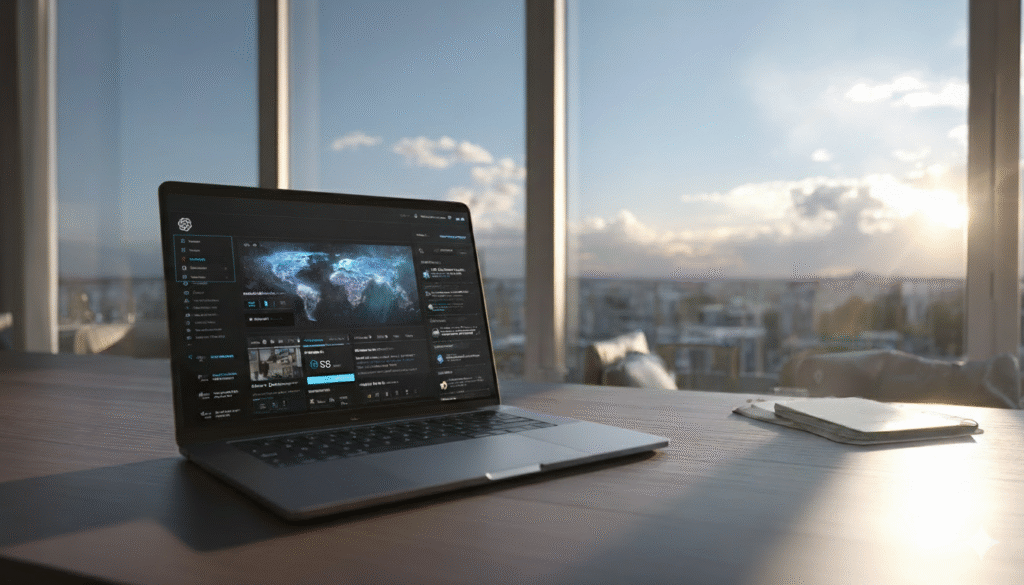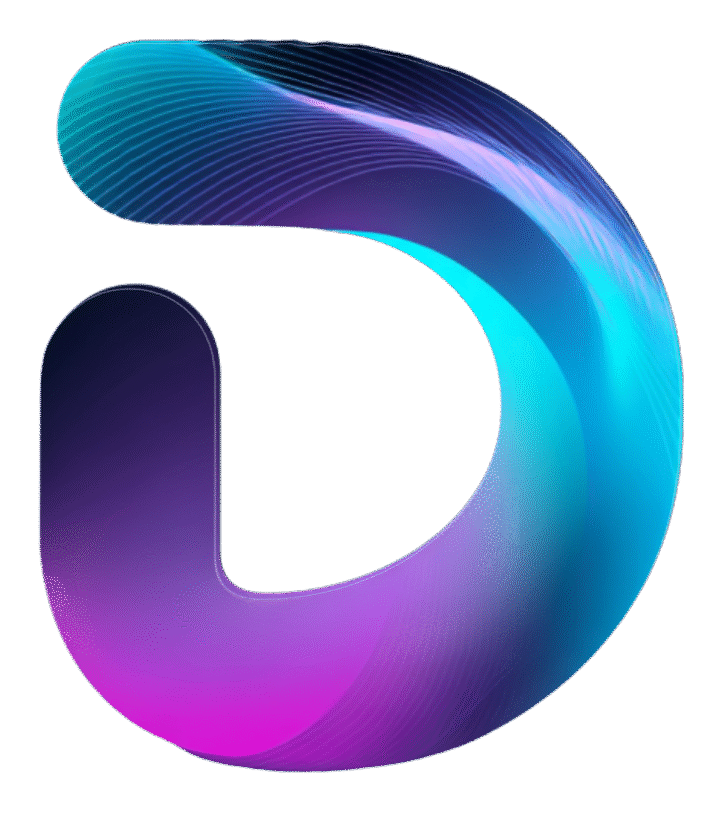
Table of Contents
The OpenAI Atlas Browser has officially launched, and it’s not just another application entering a crowded market; it’s a seismic event that signals a fundamental shift in how we interact with the internet. This is a direct and potent challenge to the long-standing dominance of Google Chrome. For years, the browser has been a relatively static tool, a passive window to the web. But OpenAI is betting that the future of browsing isn’t just about viewing content, but about actively collaborating with it, and its new AI-powered web browser is the vessel for that vision.
At the heart of Atlas is its deep, native integration with ChatGPT. OpenAI officials have emphasized that this is not a simple feature that has been “bolted on,” but rather an intelligence layer woven into the very fabric of the browser. This architecture enables a suite of features designed to create a more fluid, intuitive, and intelligent browsing experience. Here are 10 ways the OpenAI Atlas Browser is changing how we use the web.
1. Natural Language Navigation Replaces the Address Bar
The OpenAI Atlas Browser fundamentally reimagines how we navigate online. Instead of typing URLs or keywords into an address bar, you can simply ask Atlas what you need in plain English. Want to “find the highest-rated Italian restaurants that are open now near me” or “show me the latest developments in quantum computing”? Atlas understands and delivers curated, conversational results. This shift from typing to talking represents a more human way to interact with technology.
2. Browser Memories Create a Personalized Web Experience
With your explicit permission, Atlas can remember the sites you visit and the information you consume, using this accumulated context to provide more relevant responses over time. If you’ve been researching a specific programming language, Atlas can proactively suggest relevant tutorials, forums, or open-source projects. It effectively becomes a personalized research assistant, learning your interests and anticipating your needs.
3. Intelligent Sidebar Assistance on Every Page
The ChatGPT sidebar is available on any webpage you visit, allowing you to summarize content, compare products, or analyze data without switching tabs or copying and pasting. This seamless integration means you can get instant help wherever you are on the web, transforming every page into an interactive workspace.
4. In-Line Writing Help Across the Web
Atlas allows you to highlight any text in any form field or document and instantly call up ChatGPT for assistance. Need to make an email sound more professional? Want to rephrase a social media post? The AI is right there, embedded in your workflow, eliminating the friction of switching between applications.
5. Agent Mode Completes Tasks From Start to Finish
Perhaps the most revolutionary feature of the OpenAI Atlas Browser is Agent Mode, available to premium subscribers. When activated, ChatGPT can take control of the browser to perform multi-step tasks on your behalf. Planning a dinner party? Provide a recipe and instruct the agent to create a shopping list, find a local grocery store, add ingredients to a cart, and proceed to checkout. The agent navigates websites, clicks buttons, and fills in forms autonomously.
6. Smart Search Results Beyond Blue Links
When you search in Atlas, you don’t just get a list of links. The AI provides a conversational answer first, with tabs for traditional search links, images, videos, and news as secondary options. This inverts the traditional search experience, putting intelligence first and raw data second.
7. Home Page Suggestions Based on Your Activity
Atlas learns from your browsing patterns and suggests what to do next, whether that’s returning to past pages, digging deeper into a topic, surfacing related ideas, or automating routine tasks. The browser becomes proactive rather than reactive, anticipating your needs before you articulate them.
8. Privacy Controls That Put You in Charge
OpenAI has built granular privacy controls into Atlas. You can disable browser memories, clear specific pages or your entire browsing history, or open an incognito window to temporarily log out of ChatGPT. By default, your browsing data is not used to train ChatGPT models unless you explicitly opt in. This level of transparency is critical as AI becomes more integrated into our daily lives.
9. Built-In Safeguards for Autonomous Actions
Agent Mode includes important safety features. The AI cannot run code in the browser, download files, or install extensions. It cannot access other apps on your computer or your file system. It will pause to ensure you’re watching when it takes actions on sensitive sites like financial institutions. You can also run the agent in logged-out mode to limit its access to your personal data.
10. Cross-Platform Integration Coming Soon
While Atlas is currently available only on macOS, OpenAI has confirmed that support for Windows, iOS, and Android is in development. This means the intelligent browsing experience will soon be available across all your devices, creating a seamless ecosystem where your AI assistant follows you everywhere.
The AI Arms Race: OpenAI vs. Google
The launch of the OpenAI Atlas Browser is the latest and most aggressive salvo in the escalating AI arms race between OpenAI and Google. For over a decade, Google has been the undisputed king of the internet, with its search engine and Chrome browser forming a nearly unshakeable duopoly. However, the explosion of generative AI has created a new front in this battle, and OpenAI is leveraging its early lead with ruthless efficiency.
While Google has been retrofitting its own AI, Gemini, into its existing products, the OpenAI Atlas Browser represents a more fundamental rethinking of what a browser can be. By building a browser from the ground up with AI at its core, OpenAI aims to leapfrog the competition. The market has taken notice, with Google’s stock showing volatility immediately following the Atlas announcement. The message is clear: the browser wars are back, and this time, they’re being fought with artificial intelligence. As we’ve seen with other disruptive AI, like the Sora text-to-video model, the pace of innovation is staggering. The societal concerns these advancements raise are significant, a topic we explored in my previous article on OpenAI’s Sora.
The Privacy Paradox: Convenience at What Cost?
With great power comes great responsibility. The rise of AI-powered browsers introduces a new dimension to the debate around digital privacy. The very features that make the OpenAI Atlas Browser so compelling, its ability to remember your context and act on your behalf, also create potential vulnerabilities. Competitors like Brave have built their entire brand on privacy, and they are right to raise concerns.
OpenAI has been proactive in addressing these issues, but as we step into this new era, user vigilance is paramount. The potential for sophisticated prompt injection attacks, where malicious code hidden on a webpage could trick the AI agent into performing unintended actions, is a serious concern that security experts are already working to mitigate.
The Future of Web Navigation is Here
The launch of the OpenAI Atlas Browser is more than a product release; it’s a declaration that the future of the internet is here. The traditional lines separating the browser, the search engine, and the AI assistant are dissolving, creating a unified, intelligent interface for the digital world. As reported by TechCrunch, the initial release of Atlas is for macOS, with support for other platforms coming soon. This phased rollout gives OpenAI time to refine the product, but it also lights a fire under competitors like Google to innovate or risk being left behind. The next year will be pivotal in defining the next chapter of the web, and it’s a story that is just beginning to unfold.
